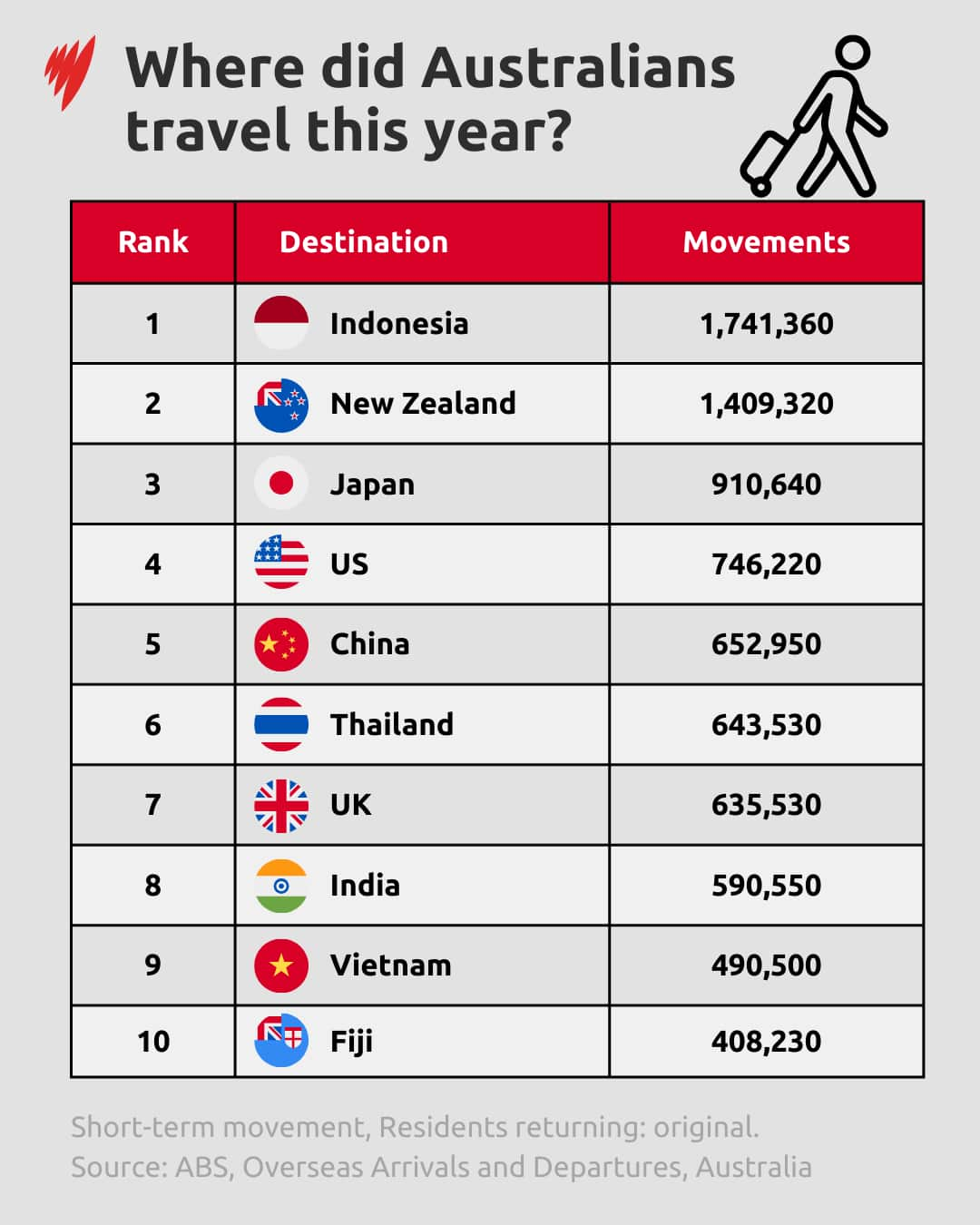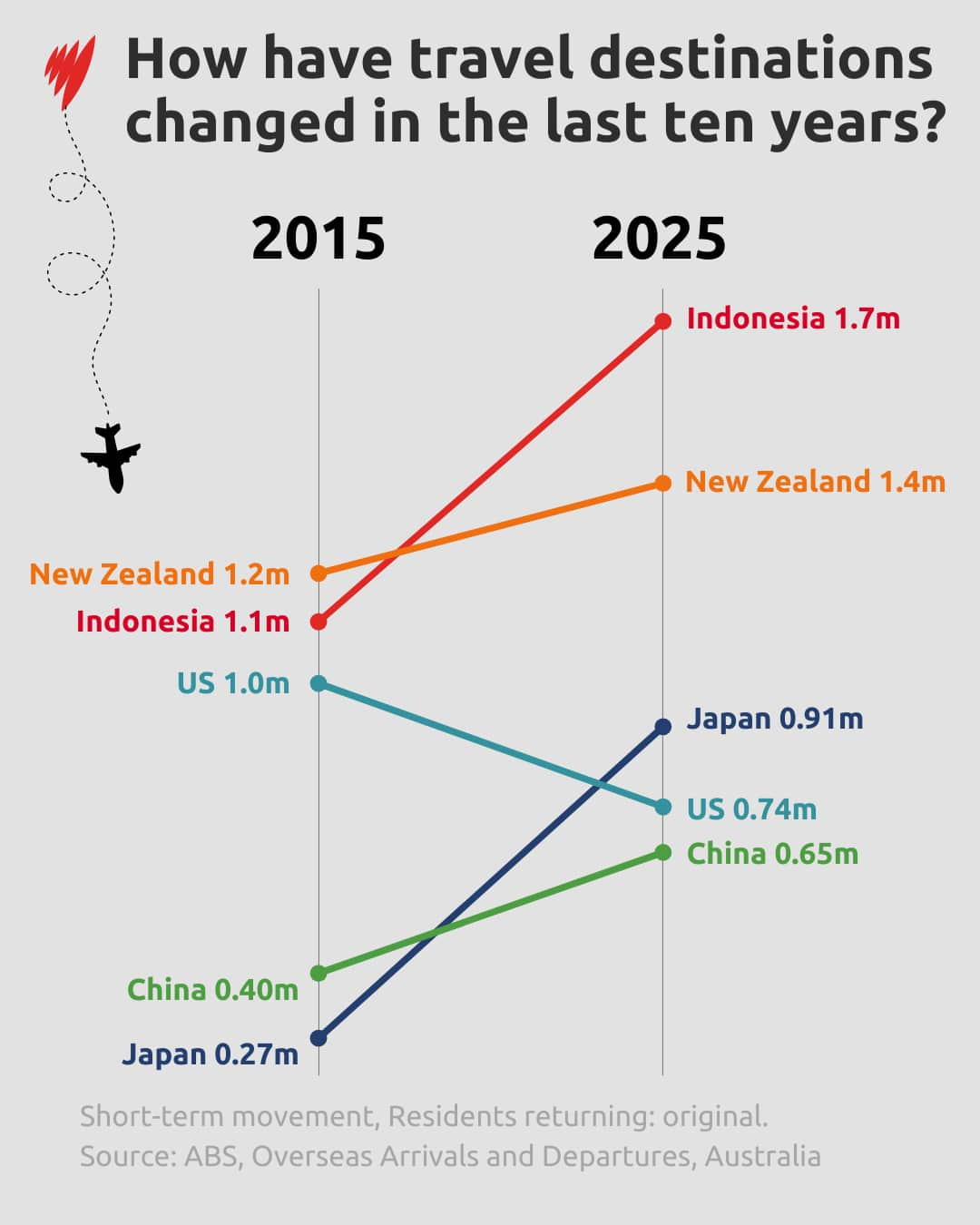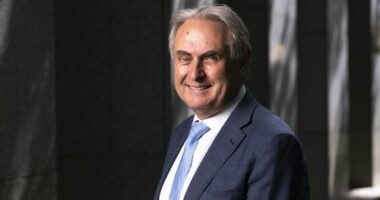Share this @internewscast.com
Indonesia — particularly Bali — remained at the top, accounting for 14 per cent, or 1,741,370, of Australian trips.
Ten years ago, in 2014-15, the top five countries were New Zealand, Indonesia, the US, the UK and Thailand.

Indonesia topped the list of Australians’ most popular travel destinations yet again, thanks to its island paradise of Bali. Meanwhile, the United States has dropped one place. Source: SBS News
Japan up, US down
Skyscanner’s 2025 travel trends report found that the top factors influencing destination choice were weather (66 per cent), attractions (65 per cent), food (63 per cent) and culture (59 per cent).

Travel to the United States is 25 per cent lower than 10 years ago, while the number of trips to Japan has tripled compared to data from 2014-15. Source: SBS News
On the other hand, Dolnicar says the United States may be seeing a dip in travel interest partly due to political insecurity.
“The way consumers operate in their behaviour is that they’ll still want to go to New York, but they’ll say, ‘maybe I’ll just wait a couple of years.'”
“With the US, people might say they love it, but now is not a good time. And now with China, they might have always wanted to check it out and they’ve made it easier to get in — so why not?”
The bigger forces shaping travel
“That suggests that while the desire to explore remains strong, cost-of-living pressures and economic uncertainty are influencing how and when people travel,” Osmond told SBS News.
Osmond added: “While the US remains a bucket-list destination for many Australians, higher costs, a weaker exchange rate and the rising expense of long-haul flights have dampened demand.”
What’s the next hotspot?
“The whole of Asia is very attractive. It’s close and it’s affordable,” Dolnicar said. “Vietnam is kind of an alternative to Indonesia … it’s a little bit more off the beaten track.”










